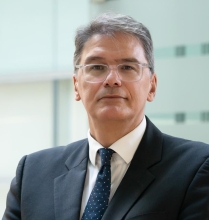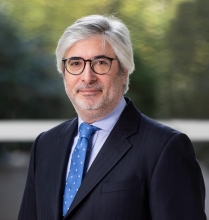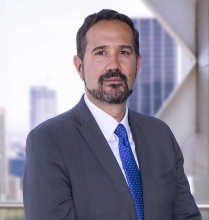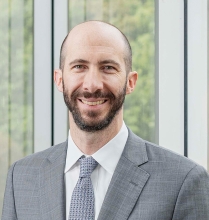International Arbitration Newsletter - April 2020 | Regional Overview: The Americas
The most relevant updates of The Americas from the global International Arbitration and ADR practice group at Garrigues.
Colombia
Colombia faces royalty payment treaty claim
A British subsidiary of Australian mining company, South32, has filed an ICSID claim against Colombia for royalty payments in relation to its Cerro Matoso ferronickel mine.
The mining company invokes the 2010 Colombia-UK Bilateral Investment Treaty in connection with the initiation of a tax liability investigation by Colombia’s Office of the Comptroller General for an alleged failure to pay royalties amounting to US$ 181.5 million during the period 1982 to 2012 and in connection with two concession contracts terminated in 2012.
South32 considers that this investigation violates the "legal security" that protects foreign investment in Colombia and that it "lacks legal and technical support, since it refers to concession contracts finalized in 2012 that are currently being liquidated by the Administrative Court of Cundinamarca”. The mining company contends that seeking a retroactive collection of royalties from terminated contracts is unconstitutional and that its settlement is in the hands of the contentious-administrative jurisdiction. Furthermore, the State wants to collect on periods already audited and collected by the same entity.
It also describes the amount sought as “disproportionate and unjustified”, alleging that the Comptroller is ignoring the agreed contractual formula for calculating royalties and had included royalties for iron, which the company is not obliged to pay according to the law and contracts.
Panama
New BIT claim against Panama over the Panama Canal expansion project
Italy’s Salini Impregilo has filed an investment arbitration against Panama at ICSID, invoking the 2009 Panama-Italy Bilateral Investment Treaty.
The claim, which amounts to US$ 2.2 billion, is the second treaty claim filed concerning the Panama Canal expansion project.
With the filing of this claim, the Italian construction group has followed through with its threat madein 2015. At the time, Salini Impregilo warned that they would sue Panama for damages arising from the construction of the expansion of the canal, as a result of the alleged violations of Panama's obligations to provide fair, equitable and non-discriminatory treatment to the investors; provide full protection and security; fulfill its obligations and commitments; and not to expropriate without fair and adequate compensation.
Salini Impregio is part of Grupo Unidos por el Canal, S.A. (GUPC), the contractor in charge of the design and construction of the third set of locks, a relevant part of the Panama Canal Expansion project. The other three members of the GUPC are Panama’s Constructora Urbana, Spain’s Sacyr and Belgium’s Jan de Nul. Spain’s Sacyr also filed an UNCITRAL treaty claim against Panama in 2018 under the Spain-Panama Bilateral Investment Treaty.
Canada
Canada wins its first BIT claim
An ICSID tribunal has rejected a more than CAD$1.3 billion claim filed by the Egyptian-based integrated telecommunications services company, Global Telecom Holding (GT) against the Government of Canada.
This was the first bilateral investment treaty (BIT) case Canada has had to face so far.
The claim was brought in 2016 under the Egypt-Canada BIT by the Egyptian telecoms company, which is majority owned by Veon Group, an Amsterdam-based telecoms group. GT accused Canada of failing to create a favorable, fair and competitive regulatory environment for new investors in the telecommunications sector.
The case involves an investment made in 2008 by the Egyptian telecoms company in a major Canadian telephone operator, Wind Mobile. However, due to a longstanding dispute with Ottawa over GT's plans to expand its investment in Wind Mobile, the Egyptian company decided to sell its stake in 2014 and, some time later, decided to file this arbitration claim.
However, the tribunal found Canada not liable of such accusations and, thus, dismissed all GT’s claims in the proceeding.
Venezuela
Curaçao pursues a US$ 162 million ICDR arbitration claim against PDVSA
Refineria di Korsou (RdK), a state-run oil refining firm in Curaçao, has filed a US$ 162 million claim against Venezuela’s state-owned Petróleos de Venezuela, S.A. (PDVSA) before ICDR over the management carried out by the Venezuelan company in the Dutch Caribbean island’s oil refinery.
Curaçao’s refinery was run by the Venezuelan state-owned company for 34 years until 2019, but U.S. sanctions against Venezuela led to the interruption of operations. Subsequently, PDVSA, which owes billions of dollars to its creditors, has defaulted on lease payments, take or pay agreements or maintenance requirements.
In March 2020, RdK seized a PDVSA-owned oil storage terminal in Bonaire in order to enforce claims for overdue payments, maintenance costs and environmental damage. It seems that RdK will seek approval from a Dutch court in Curaçao to sell Bonaire Petroleum Corp (Bopec) and its 10 million barrel oil storage terminal in a public auction, in case it does not receive what is owed by PDVSA.
Peru
Peru fears a wave of arbitration as a result of the suspension of toll collection agreed as a measure against Covid-19
In early April, the Congress of the Republic of Peru agreed to approve the bill that provides for the suspension of the collection of toll fees at the national level during the state of national emergency decreed as a result of the Covid-19 outbreak.
The measure, which aims to reduce contact between users and workers, as well as to ease the transport of essential goods or workers at a time when many Peruvians have lost their income, applies to both state-administered and private tolls.
Many fear that the measure will lead to an avalanche of ICSID treaty claims over unilateral changes to their contracts since the companies that administer the tolls are being obliged to continue providing the service but without charging fees.
Contacts




-
+52 55 1102 3570
-
+57 601 326 69 99



